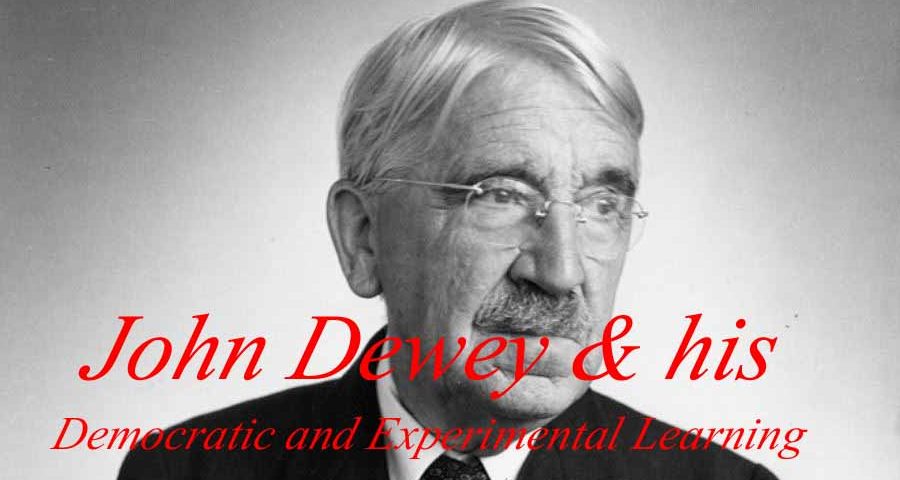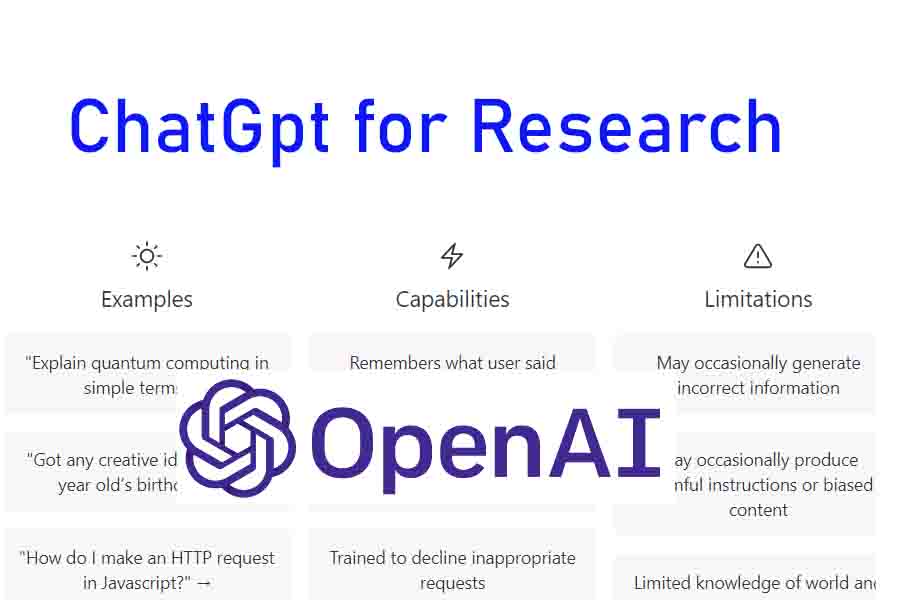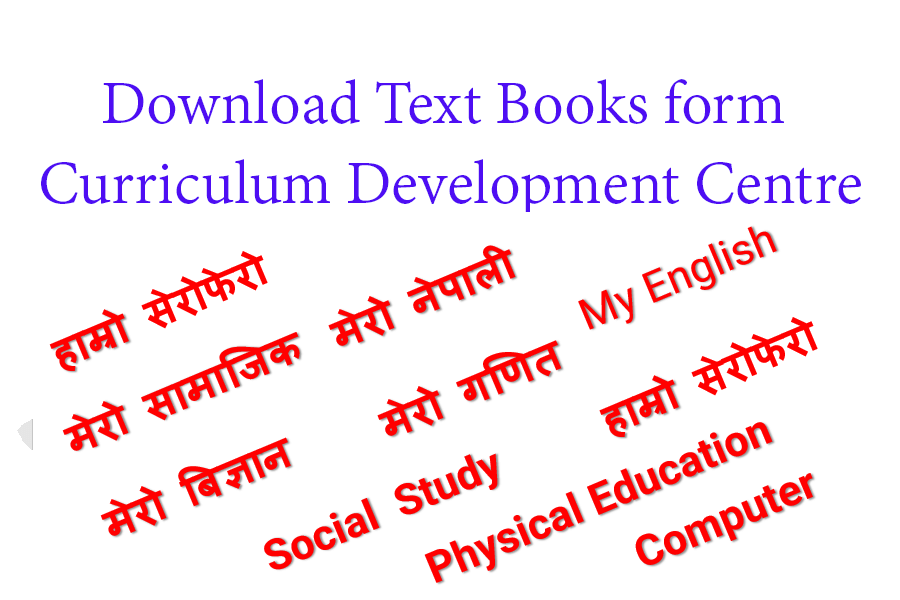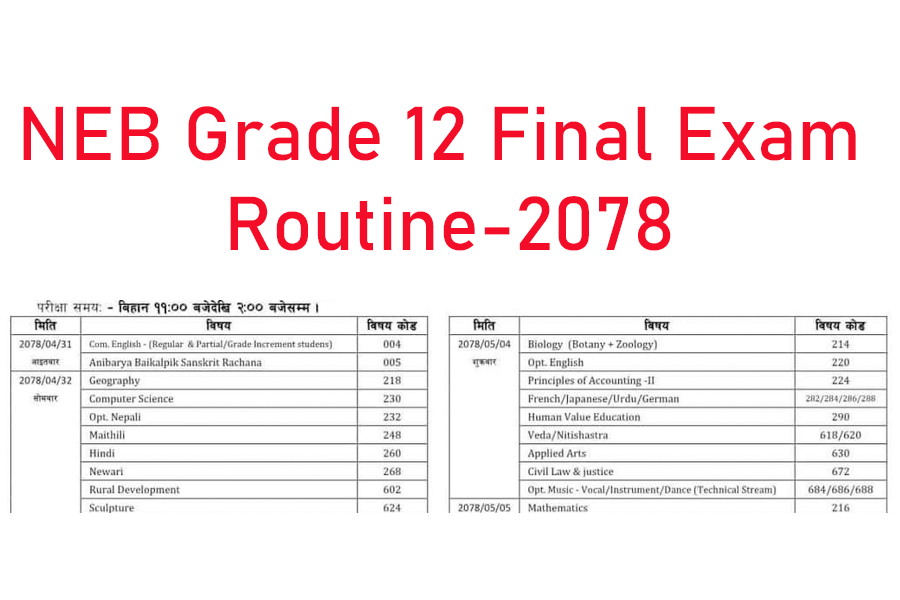John Dewey and his Democratic & Experimental Learning

e-Shikshya Package of Nepal Telecom
May 23, 2020
Major Contribution of Michel Foucault
September 29, 2020John Dewey and his Democratic & Experimental Learning

John Dewey (1859–1952) was an American philosopher, educator, psychologist, pragmatist, social critic, and political activist (Dimitriadis & Kamberelis, 2006). He was born in Burlington, Vermont, and had done graduate in philosophy at Johns Hopkins University. Then he started his academic career from department of philosophy at the University of Michigan (Dimitriadis & Kamberelis, 2006). His contribution to progressive education emphasizes the use of the democratic and experimental approach in the teaching and learning process. Dewey’s theory of education, progressive education, pragmatic method of instrumentalism, democratic, and experimental approach has a significant role in the modern education system (Dimitriadis & Kamberelis, 2006). Dewey suggested that education has to prepare students for an uncertain future and priority should be given to developing habits, learning ability, and adaptation to learn. He believes that the dogmatic learning method is not suitable for teaching and learning activities. He focused on the democratic and experimental learning method for the holistic development of a child.
While talking about Dogmatism, it has been defined as (a) “a relatively closed cognitive system of beliefs and disbeliefs about reality, (b) organized around a central set of beliefs about absolute authority which, in turn, (c) provides a framework for patterns of intolerance and qualified tolerance toward others” (Rokeach, 1954, p. 203). Dogmatic theology has its own importance which is used to recall the theory and formula in mathematics and science, and assimilate them. Mainly the dogmatic approach is helpful for the development of habit (Committee & Scripture, n.d.) but the dogmatism arise more difficulty which infects the mind by making narrow, simplistic, superficial, rigid thinking about complex issues especially in Mathematics and Science (Ambrose, 2017). In Science, without practice and experiments in virtual reality, the dogmatic theory makes people like blind. The dogmatic approach emphasizes on rote learning, memorization of the findings and skills which do not last long in the mind of people (Bazzul et al., 2018). Several researches emphases for the dogmatic approach .The dogmatic person seems relatively more consistency in their believes than other nondogmatic persons however it depends on their individual differences (Leone, 1989; Rokeach et al., 1955).
“Those who answers no, have become known as Dogmatists” (White, 2006). The dogmatists cannot think widely and innovative way. They seems rigids in their believes, education, culture and follow the guidelines given by teachers (White, 2006). Their classroom teaching is not in democratic and constructive way, they focus on memorization. They suppose teachers are the source of knowledge and are gods. There is only one approach for solving the and viewing the problem. The role of teacher is autocratic and student’s role is good listener. So, Dewey rejected the dogmatic approach and suggested to follow democratic and experimental approach in teaching. In the beginning of 20th century, Dewey introduced educational theory which brought educational movement into new methods of teaching and learning, teaching and discipline co-operative and interactive learning, constructive and democratic learning (Miovska-Spaseva, 2016).
Dewey’s idea and approaches in modern education system is still important. His child-centered education, inquiry-based learning, progressive, constructive and democratic education emphasizes learning by doing. The involvement of teacher is not necessary in experimental learning. Students experience for learning, interpret, investigate, interact among learners, learners and teacher, learners and their environment however the teachers role becomes only facilitator (Beard, 2018). Students interact with the environment to adopt and learn. Student can learn only in democratic way with their choice and voice. (Tienken, 2020). Each and every student of class can get chance to participate in each of the activities. They can put their words, feelings and interact with social environment. The role of teacher is simply a facilitator. Dewey believes that the teacher and student should learn together it mean learning can be done with the co-ordination among students and teacher. The classroom should be fully in democratic ideas which enhance equal voice of each student in learning process (Tienken, 2020). The schools and classroom should make such environment so that it represent real life situation and students get involve in learning activities (Williams, 2017). The classroom looks like social community so that student learn and solve problems together with teachers. Students be busy for construction of knowledge by ‘learning by doing’ method. Thus, Dewey believed that student can learn ‘by hands on’ approach (Williams, 2017). He focused on child centered approach so that learning should be according to the and interest of student. He also focused on interdisciplinary approach in constriction of curriculum. It integrates multiple subject which helps to construct different ideas in the classroom. In Nepal, from class 1 to 3 the integrated curriculum is to be implementing from this year. Dewey’s learning theory is also an additional model of Montessori school. The curriculum and teaching learning pedagogies of Montessori schools are based on Dewey’s learning approach (Williams, 2017). Maria Montessori liked Dewey’s believes and felt that traditional learning system brought monotonous and boring situation in the classroom. That’s why she introduced Montessori system of learning by playing method (Williams, 2017).
Finally, in dogmatic approach, teachers stand in front of the student, students sit quietly in their position. The teacher starts his lesson by tradition method using chalk and duster being dictator, students listen carefully and follow the teacher’s instruction. There won not be any discussion, questions and further activities. John Dewey thought the traditional teaching method, classroom, textbooks, role of teacher, role of students and school environment, curriculum, etc. are not according to the need and interest of students. (Tienken, 2020). There is no participatory and interactive learning which is beyond interest of young learners (Williams, 2017). So, he rejected the traditional dogmatic approach in teaching. He believes that learning should be in constructive and democratic approach so that students can learn freely (Thorburn, 2019). The teacher and students should work together to learn. He focused that curriculum, textbooks, teaching and learning approach evaluation system should be according to the need of students. Thus, John Dewey rejected dogmatic principles of learning and suggested to use the democratic approach of learning. He believed democratic and experimental approach allow learners for experimental learning and innovation.
Author: Khadak Raj Adhikari (M.Phil Scholar, Nepal Open University)
Need further reading about the theorist for education? Click here Theorists for Education.
Need further educational materials Please click here
References
Ambrose, D. (2017). Revealing and overcoming the dogmatism of sterile certainty in mathematics education. ZDM – Mathematics Education, 49(7), 1009–1021. https://doi.org/10.1007/s11858-017-0888-y
Bazzul, J., Wallace, M. F. G., & Higgins, M. (2018). Dreaming and immanence: rejecting the dogmatic image of thought in science education. Cultural Studies of Science Education, 13(3), 823–835. https://doi.org/10.1007/s11422-017-9816-2
Beard, C. (2018). Dewey in the World of Experiential Education. New Directions for Adult and Continuing Education, 158, 27–37. https://doi.org/10.1002/ace.20276
Committee, E., & Scripture, S. (n.d.). SCIENTIFIC TEACHING OF DOGMATIC THEOLOGY. 174–180.
Dimitriadis, G., & Kamberelis, G. (2006). Theory for Education. In Published in 2006 by Routledge Taylor & Francis Group 270 Madison Avenue New York, NY 10016 Published (Vol. 369, Issue 1). https://doi.org/10.1017/CBO9781107415324.004
Leone, C. (1989). Self-generated attitude change: Some effects of thought and dogmatism on attitude polarization. Personality and Individual Differences, 10(12), 1243–1252. https://doi.org/10.1016/0191-8869(89)90236-5
Miovska-Spaseva, S. (2016). The Educational Theory of John Dewey and its Influence on Educational Policy and Practice in Macedonia. Espacio, Tiempo y Educación, 3(2), 207. https://doi.org/10.14516/ete.2016.003.002.009
Rokeach, M. (1954). The nature and meaning of dogmatism. Psychological Review, 61(3), 194–204. https://doi.org/10.1037/h0060752
Rokeach, M., McGovney, W. C., & Denny, M. R. (1955). A distinction between dogmatic and rigid thinking. Journal of Abnormal and Social Psychology, 51(1), 87–93. https://doi.org/10.1037/h0040666
Thorburn, M. (2019). Social democracy, economic liberalism and physical education: a Dewey-informed review of philosophical and pedagogical possibilities. Pedagogy, Culture and Society, 27(1), 151–162. https://doi.org/10.1080/14681366.2018.1513421
Tienken, C. H. (2020). Democratic Education: What Would Dewey Say? Kappa Delta Pi Record, 56(1), 35–41. https://doi.org/10.1080/00228958.2020.1696093
White, R. (2006). Problems for dogmatism. Philosophical Studies, 131(3), 525–557. https://doi.org/10.1007/s11098-004-7487-9
Williams, M. (2017). John Dewey in the 21st Century. Journal of Inquiry and Action in Education, 9(1), 91–102.





